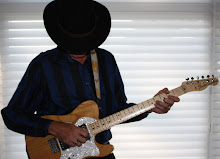Speaking of genres (well, I was two posts ago), wasn’t it all so much
easier when we though of everything as just pop – or rock ‘n’ roll (take your
pick)?
But this genre thing is outta control.
I mean, I get that Easy Listening and Pop and Rock and Folk and R&B
and Hip Hop just don’t cross paths too much any more(except maybe on awards
shows). I’m inured to the fact that rock
has gone through all this cell division so we’ve got Folk Rock, Punk, Metal,
Alternative, Prog, Indie and so on and so on and even more so on.
I’ve slowly come top recognize that we need additional labels such as
House and Psychobilly, and Emo and Hardcore.
I guess they serve a purpose.
But brother, when I browse some online music sites, I’m overwhelmed by
all these weird genres: Doom? Sleaze?
Sadcore? Red Dirt?
Really? What are these about?
OK, you can kinda guess what Melodic Death might be like, or Screamo, or
Horrorcore, or Trip Hop. Gothabilly you
can almost picture (or hear, I guess).
Ditto Acid Folk, even Swamp. I
think.
And it turns out most ‘em have entries in Wikipedia, so I suppose
there’s more than one band doing them.
But simple folk like me have to be enlightened as to why we need
Shoegaze, Glitch or Grime.
But some of this sub-genrification is kinda pointless isn’t it? I mean, Wikipedia defines Street Punk as “a
working class-based genre of punk rock.”
Hello? Was normal Punk something
reserved for the upper class? Like The
Sex Pistols gave us music for Toffs?
Maybe some of these bands are just trying to distinguish themselves in
ways that don’t involve their actual music.
Maybe they’re having us on.
Noir? Heartfelt and Lyrical? Youtube?
Jack Daniels?
I think I need a swig.


